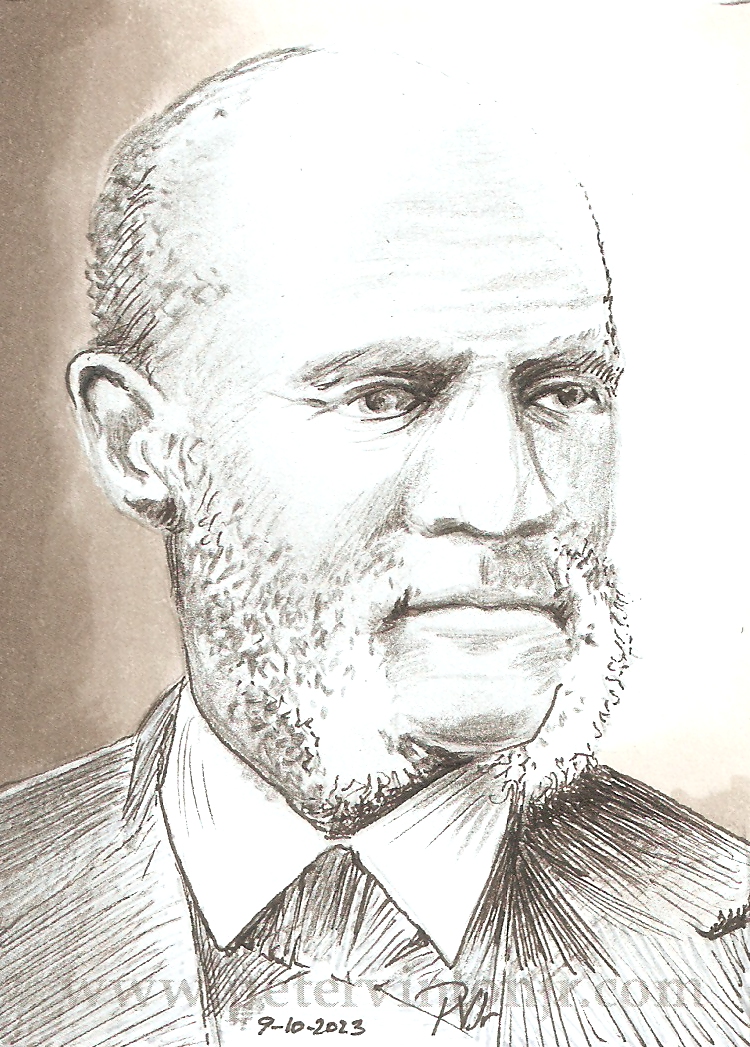
An ongoing illustrative history study
This piece originally posted 9/10/2023
(following a slightly-updated repost of Lesson 113, Julius "July" Perry on 9/3/2023)
Prelude | 133 | 134 | 135 | 136 | 137 | 138 | 139 | 140 | 141 | Email |
|---|
"Brethren, arise, arise! Strike for your lives and liberties. Now is the day and the hour. Let every slave throughout the land do this and the days of slavery are numbered. You cannot be more oppressed than you have been -- you cannot suffer greater cruelties than you have already. Rather die freemen than live to be slaves. Remember that you are FOUR MILLIONS!"
Hearken to the words of Henry Highland Garnet, self-professed "troublemaker" and abolitionist. Born enslaved in 1815 Maryland, Henry (then Trusty) escaped to Pennsylvania at the age of nine, along with his parents, by way of the Underground Railroad. The family later settled in New York and Henry's father established himself as a shoemaker. Henry attended the African Free School, and also became a member of the Methodist Episcopal Church, where he found solace... and inspiration.
Later in 1829, while Henry was at sea having taken a job as a cabin boy and cook (and studying the science of navigation while he was at it), his home was broken into by slave catchers, who kidnapped his sister, although his parents escaped. Originally driven by vengeance, Garnet settled on Long Island and eventually embarked upon a more spiritual path at the Oneida Institute in Whitesboro, New York. He became a Presbyterian minister and in 1942 became pastor of the Liberty Street Negro Presbyterian Church in Troy, New York --where he also came into regular contact with other abolitionists.
In 1843 Garnet delivered his infamous "Call to Rebellion" speech at the National Negro Convention in Buffalo, where he openly encouraged slaves to free themselves, to rise up against their owners. Garnet became a controversial, polarizing figure within the abolitionist movement --even figures such as Frederick Douglas considered the idea too radical. During the Civil War he became pastor of the Fifteenth Street Presbyterian Church in Washington, D.C. After the war, in 1865 Garnet preached a sermon in the House of Representatives --the first speech ever delivered in the Capitol by an African-American.
In 1868 Garnet served as President of Avery College in Pittsburg, Pennsylvania. During this time he continued to deliver speeches and presentations, and began to address the notion of migration of Black Americans to Liberia; a principle to which he was originally opposed but later supported. In 1881 President Garfield appointed Garnet as minister (ambassador) to Liberia, and Garnet moved to the West African nation but died on February 13, 1882, barely two months after his arrival.
Read the text of his 1843 speech and get a sense of just why it was so controversial --and alarming.
Next page - Lesson 138: Nannie Helen Burroughs